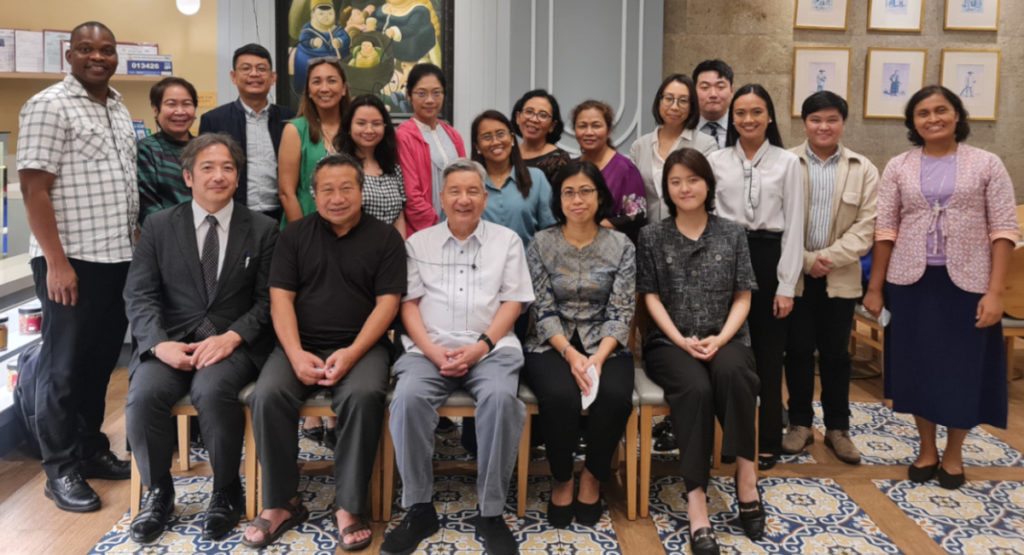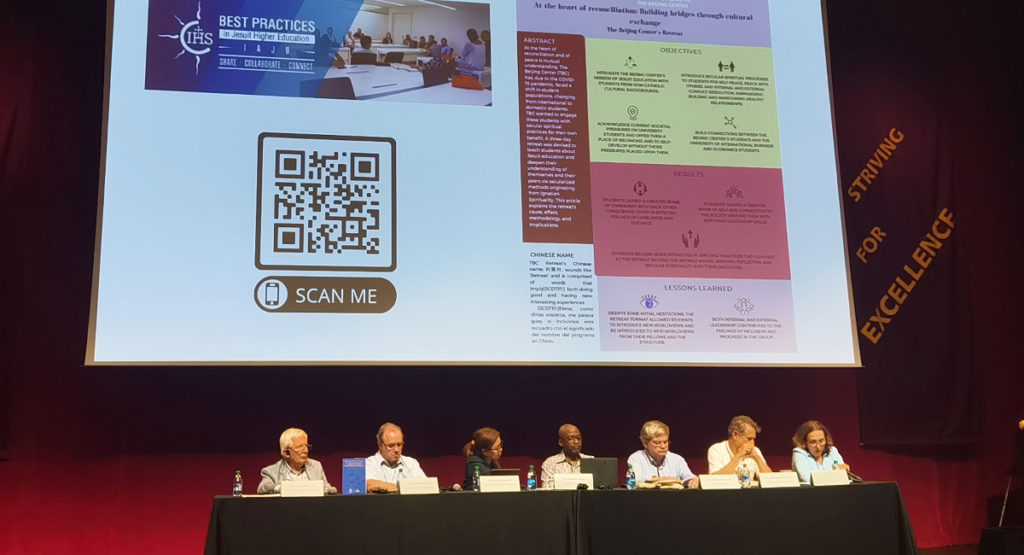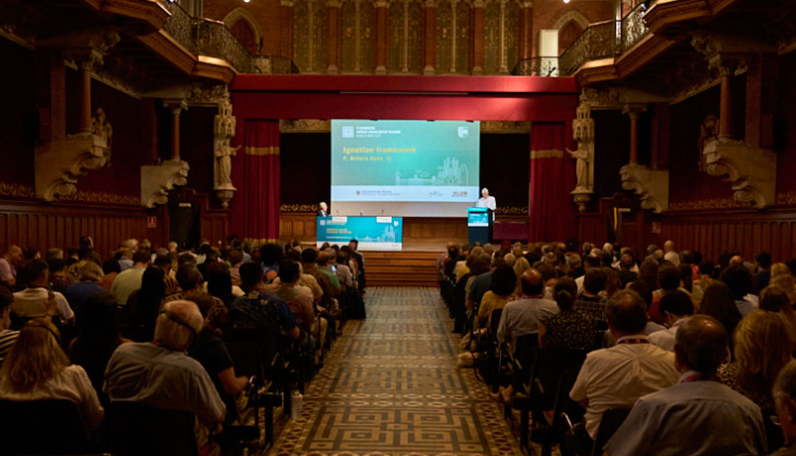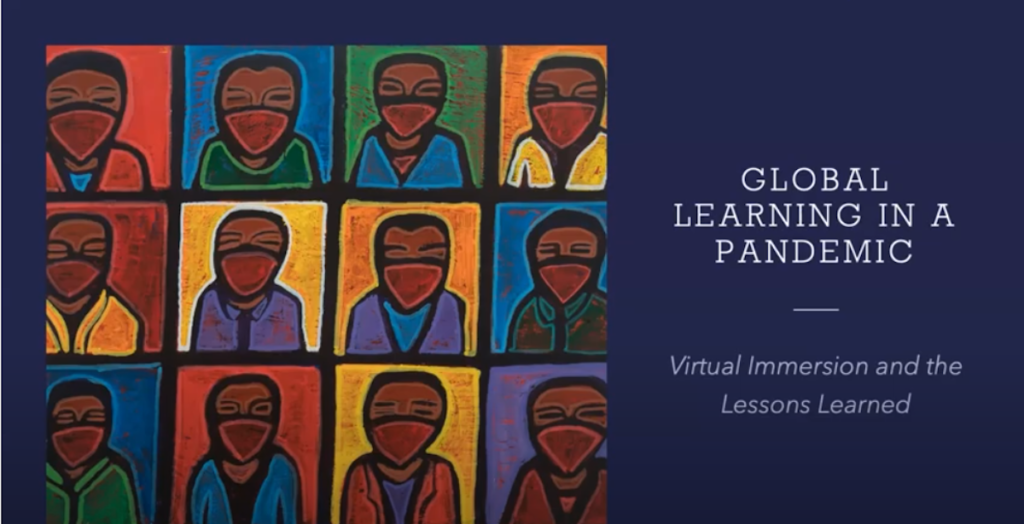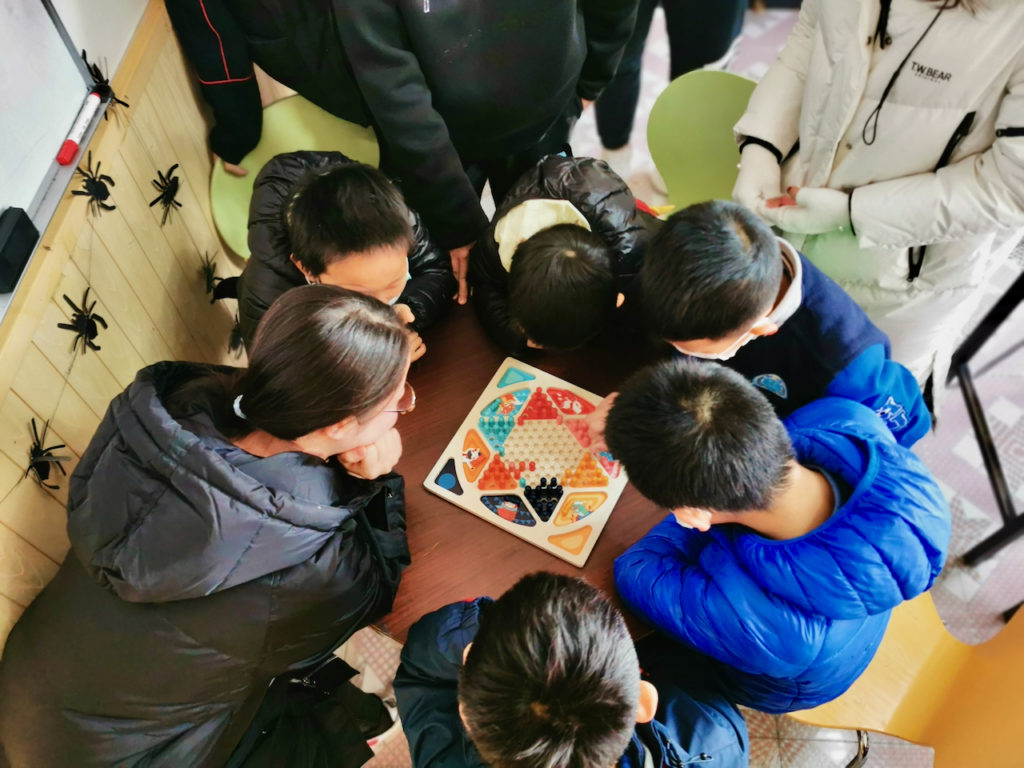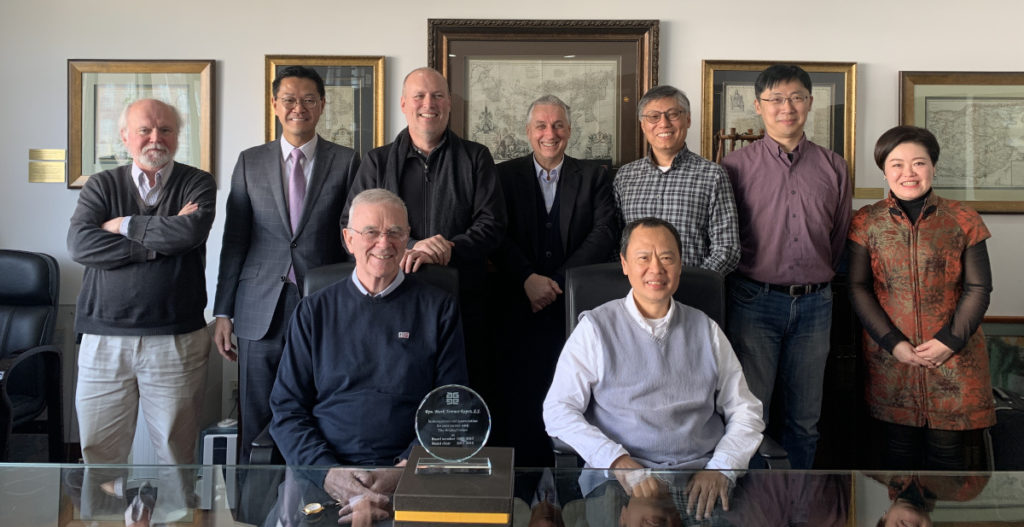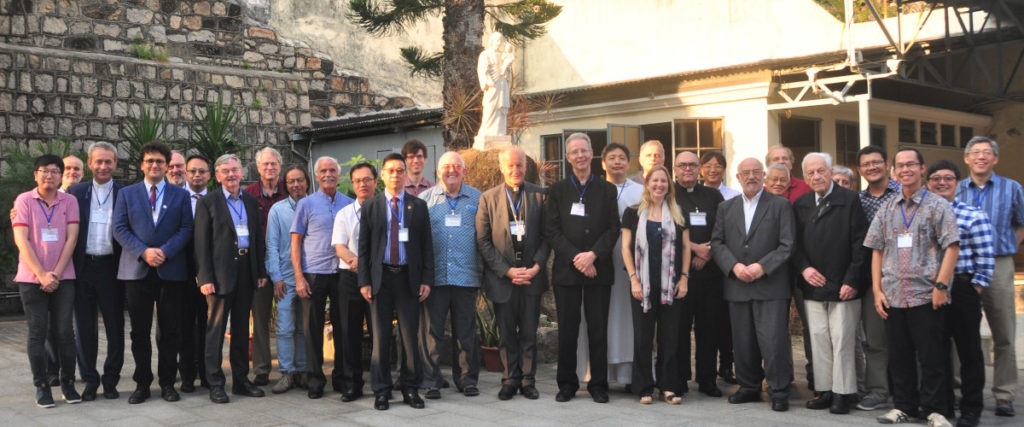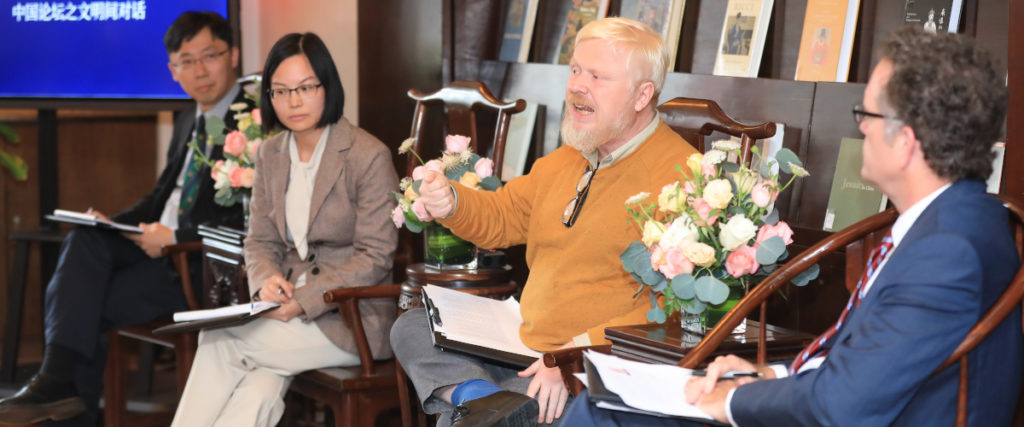I attended for the first time the gathering of the International Networking Officers of the Association of Jesuit Colleges and Universities – Asia Pacific Continue reading “Working and walking together as members of the “Jesuit” body of higher education”
Working and walking together as members of the “Jesuit” body of higher education
TBC featured in IAJU’s Best Practices in Jesuit education
A paper by The Beijing Center (TBC) has been published in the “IAJU Best Practices in Jesuit Higher Education Project,” an initiative coordinated by the Kircher Network and composed of contributions from the International Association of Jesuit Universities (IAJU) regional networks. Continue reading “TBC featured in IAJU’s Best Practices in Jesuit education”
A culture of collaboration to become persons with and for others
On Thursday, 14 July, Fr. General Arturo Sosa SJ spoke during the X Congress of the World Union of Jesuit Alumni (WUJA) at the San Ignacio Sarria College in Barcelona.
During his talk, Fr. Sosa made an invitation to continue the conversation initiated by Fr. General Arrupe almost 50 years ago with the Jesuit alumni, where he invited them to become persons for and with others. This invitation is still valid today in our current context and Fr. Sosa wants to expand it, so that Jesuit alumni become true partners in the mission of reconciliation and justice that the Church has entrusted to the Society of Jesus.
Fr. Sosa is aware that this invitation will require that both alumni and the Society of Jesus foster a culture of collaboration for a shared mission, based on the gifts that God has given to each one of us and under the guide of the Universal Apostolic Preferences. Although it is true that collaboration in the mission has deepened in recent years with the contributions of many lay persons who carry out the works of the Society of Jesus, this invitation from Fr. General is a new and challenging step in the relationship between the Society of Jesus and its alumni.
TBC: Caring for Our Common Home -Virtual Event Recap
On July 16, 2021, TBC held its series event East Meets West Talks, bringing together a diverse group of speakers who shed light on a pressing global issue – environmental destruction and Caring for our Common Home – planet Earth. Read more below or watch the full event recording here. Continue reading “TBC: Caring for Our Common Home -Virtual Event Recap”
In TBC’s “East Meets West”, Jesuit universities in US and Philippines reflect on service-learning
As part of its “East Meets West” talk series, The Beijing Center (TBC) hosted a virtual conversation with Loyola Marymount University in California, Ateneo de Davao University in southern Philippines, and Five Loaves and Two Fish, a Beijing-based organisation supporting children of migrant families. The conversation centred around the importance of service-learning as community involvement and student engagement in Jesuit education.
Interim Director of the Center for Service and Action at Loyola Marymount University, Patrick Furlong, began the discourse by recollecting the virtual immersion at the university and how students are connecting their passions and interests with social issues through community participation. Furlong described the service-learning approach through a global citizen lens, where students are encouraged to learn in and out of the classroom in order to use their knowledge and contribute to the betterment of the world.
Loyola Marymount University has established immersion programmes to meet their students’ need for authentic encounters, which have become progressively necessary during the ongoing pandemic. As part of these immersion programmes, students and educators participate in virtual activities that satisfy cultural curiosity, offer a safe space for reflection, and increased awareness of formative social issues.
Another service-learning perspective is practised at Ateneo de Davao University. Agnes Joy J Sagaral, Service-Learning Coordinator at the Arrupe Office of Social Formation, stressed the equal importance given to the learning goal and the service goal throughout each service initiative at Ateneo. In implementing these programmes, service-learning is framed by the Ignatian Pedagogical Paradigm. It follows a framework, where students are first provided with the context, followed by experience, reflection-action, and, finally, evaluation. An important part of the programme is the recognition given to the assisting partners and the results of their efforts in serving Asia-Pacific communities.
Fr Johnny Rakotoarisoa concluded the discussion by describing Five Loaves and Two Fish’s service efforts. As Programme Coordinator, Fr Rakotoarisoa shared the education and developmental support they provide for children of migrant families. Children are taught and cared for by dedicated volunteers, who maintain the facilities and accumulate resources to meet the children’s needs while they are in their care. Many of the organisation’s service-learning components have been a part of TBC students’ service-learning experience for years. Students have seen first-hand how children need a stable learning space as their families adjust to new lifestyles to make a better living.
An inquiry that arose from the audience was how service-learning will progress and evolve – virtually and in-person. This drew attention to the new challenges and opportunities of immersion programmes and the unfulfilled potential to do more for our communities. How, through risk, trial and error, and the use of valuable resources, service-learning initiatives can strengthen the cultural life and economic development of respective communities while shaping students into proactive and compassionate citizens.
The Beijing Center holds Virtual Internship Showcase for students
The Beijing Center (TBC) hosted a Virtual Internship Showcase to recap the student-interns’ experiences during their Fall 2020 semester. TBC began offering virtual internship experiences to students interested in China and its growing business market as one way of adapting and modifying educational methods with the development of the global pandemic.
On 21 December, working professionals, professors, and TBC staff had the opportunity to hear from student-interns from Marquette University in Wisconsin, USA, and Sanata Dharma University in Yogyakarta, Indonesia about their individual experiences working with the World Wildlife Fund (WWF) and Glue Up (formerly EventBank).
The students shared their internship work and how it has contributed to improving their skills and giving them an upper hand in continuing their studies. A common topic was how they learned from a different country and company culture and how to communicate better when working with people in different time zones.
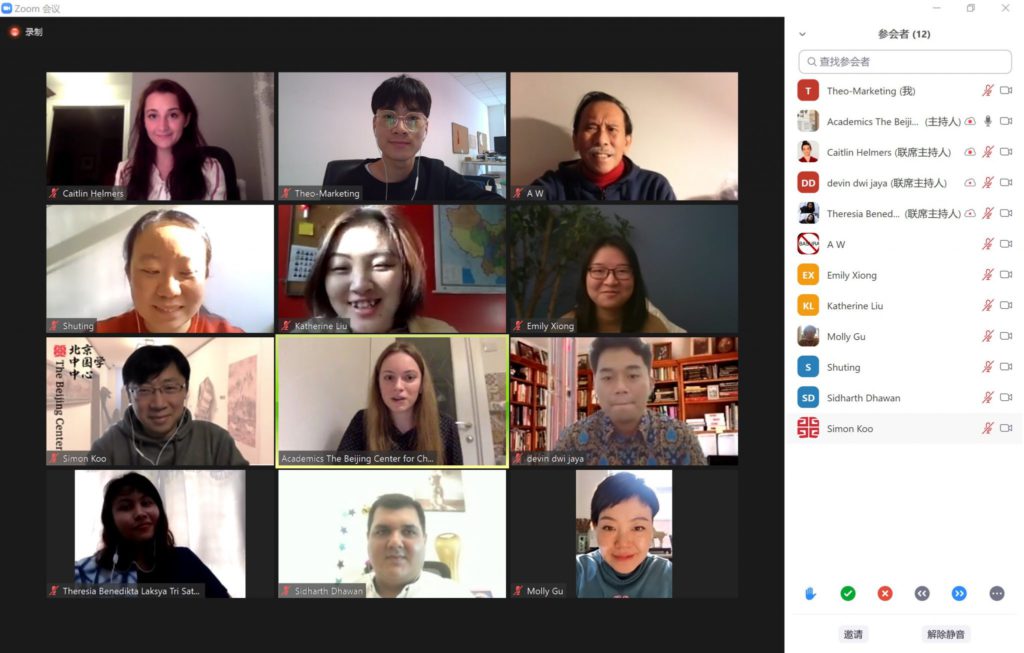
The showcase presentations concluded with a Q&A session from the audience. One of the supervisors commented on the challenges and blessings that virtual internships can bring during this particular time and how the experience of a virtual internship can help young professionals begin developing a solid remote work ethic and learning to work independently and effectively outside of the office environment.
This was the second time TBC held a Virtual Internship Showcase, the first being in summer 2020.
Multiplying the five loaves and two fish
Each semester, students at The Beijing Center (TBC) are encouraged to participate in local service-learning activities to practice the Jesuit tradition of helping others and attaining a sense of social responsibility. This fall semester, TBC students volunteered at Five Loaves and Two Fish, an organisation acting to support migrant worker families. Continue reading “Multiplying the five loaves and two fish”
JCAP President Fr Tony Moreno is new Chair of The Beijing Center
Fr Tony Moreno SJ, President of the Jesuit Conference of Asia Pacific (JCAP), has been named as Chair of The Beijing Center (TBC) to replace Fr Mark Raper SJ who has concluded his service as Board Chair and Board Member after a 12-year tenure. Fr Raper is currently Superior of the Myanmar Jesuit Mission and former JCAP President.
Besides Fr Moreno, Chinese Jesuit Provincial Fr Stephen Chow SJ was elected Vice Chair, a newly created position that is being proposed. Dr Thomas Poon was elected Board Member.
The election took place during the TBC Board of Directors meeting on November 18. The night prior to the meeting, the board members attended the TBC Annual Thanksgiving Dinner in honour of the service learning initiatives this semester.
The event brought together celebrated partnerships and friendships, along with the opportunity to recognise the unparalleled contribution organisations, such as Bethel China, make towards improving the lives of underprivileged and impaired children in China, with the support of partners and volunteers like TBC students and staff.
In his final speech as Chair, Fr Raper said he was grateful for the wonderful reunion between passionate individuals and organisations who continue working to provide students with quality international education.
Read more about the thanksgiving dinner here.
In Actione Comtemplativus – Contemplation, Mission and Martyrdom
To celebrate its 20th anniversary, the Ricci Institutes of Macau and Taipei, and the University of St Joseph Macau hosted a remarkable two-day symposium in Macau titled, “In Actione Comtemplativus – Contemplation, Mission and Martyrdom” from October 17 to 18.
It was a remarkable gathering of people and presentations. To mention only a few points of greatness: the topics, discussions and the personal sharing among participants combined to create a community of trust where group and personal reflections on apostolic mission were shared and reverenced. Through the depth of the presentations and the sharing they triggered, we were invited to go deeper in locating our personal sense of mission and Christ’s presence within; how the faith of the community anchors our sense of hope in a deeply troubled world; and how the lives of martyrs could offer inspiration and rekindle our commitment to a faith that does justice.
When I first learned of the title of the symposium – Contemplation, Mission and Martyrdom – I wondered how martyrs would be integrated into the well-established Jesuit dynamic of contemplation-in-action. Mid-morning through the first plenary session, I had my answer in Gerhard K Becker’s presentation, “Spiritual leadership in hard times: Karl Rahner and Alfred Delp”. Prof Becker led us through the life, ministry, capture, trial and martyrdom of Jesuit Fr Alfred Delp by the Nazis. Through Fr Delp’s memoirs and letter, he teased out the inner struggles of a man dedicated to justice by speaking the truth to power during a time when Germany was encompassed by hateful tyrannical leadership. Through a glimpse into Fr Delp’s ability to stand up to accusations of state betrayal and strengthened by his contemplative Christian commitment, we could look at ourselves, our past, our motivations and to think about how we affect the people around us. We were encouraged to look more deeply into the sources of our own faith and hope.
Prof Becker noted that Jesuit theologian Fr Karl Rahner was a contemporary and friend of Alfred Delp. In Rahner’s reflections on martyrdom and Christian commitment, he referred to Delp’s life and character, and points out his mystical view of God’s action in the world. Rahner was on to something of importance when he wrote in the 1960s, “The Christian of the future will be a mystic or will not exist at all”. We recognise that that future is now.
Then came Dennis McCann on the martyred Dietrich Bonhoeffer’s struggles with the Christian commitment to peace and the violent over through of Hitler, and Joseph Lee Tse-Hei on the Chinese Christian martyr Watchman Nee. These presentations, too, invited us to reflect on the motivations behind these Christian martyrs – often conflicted and unclear even to themselves – and to see what their struggles and ultimate sacrifice mean to us today.
Between the plenary sessions were many smaller group sessions of varied topics touching on contemplation, martyrdom, prayer, discernment and decision making, obedience, community building, etc. I regretted I could not attend them all.
It is impossible to write of all the excellent sessions, large and small, over the two days. I feel it important to share something of the presentation by Jesuit Fr Martin Maier, working in Brussels at the Jesuit European Social Center. Fr Maier, during an extended period of research, lived with the six Jesuits and their cook and her daughter, who would be martyred because of their commitment to a life dedicated to seeking a just solution to the long civil war in El Salvador. He spoke tenderly of his friendship with these men, their intelligence and contemplative spirit. He spoke of the meals their murdered cook had prepared for him. Similarly, Jesuit Fr Paul John Wang, a Chinese graduate student in leadership at Gonzaga University in Washington State, USA, reflected on the Salvadorian Martyrs. He highlighted their contemplation of the signs of the times in El Salvador and how their total dedication to their mission of justice led to their martyrdom.
At the symposium’s final review, we recognised that we enjoyed the formation of a holy space that nurtured us in a community of learning, reflection and prayer. Someone commented, “What Rahner said, that Christians of the future would need to live as mystics, is what happened for us here. We leave this symposium knowing that the Holy Spirit has hovered over us.”
Fr Julio Giulietti SJ is a Fellow at the Georgetown University Berkley Center for Religion, Peace and World Affairs, and living in Vietnam for 10 years.
The Jesuits in China – models of intercultural dialogue
The Beijing Center for Chinese Studies (TBC) hosted the first China Forum to be held in Mainland China. A collaboration between Georgetown University and La Civiltà Cattolica, the China Forum convenes Chinese academics and public figures with international partners to discuss common challenges at the intersection of culture, ethics and global society. The forum on October 17 was premised on the view that today’s political and ideological divides make intercultural dialogue critically important to advance the global common good.
Dr Thomas Banchoff, Vice President for Global Engagement at Georgetown University, described the challenges faced by the Jesuits in cultural dialogue from the time the Society was founded in 1540, to its re-establishment in 1814 and continuing until today. As forum moderator, Banchoff asked the panelists for their take on Jesuit dialogue, what the successes and failures are and the implications of the Jesuit culture in the contemporary era.
Fr Benoit Vermander SJ, Professor and Doctoral Advisor at Fudan University, defined success and failure – two words not found in the gospel – as “taking a position”, where success is a process that can be achieved when one accepts what is happening. He provided an insightful selection of encounters that speak to the Jesuit process, in particular the Jesuit missions from 1842 to 1949, where it was not East against West, but two contributing nationalities present during each mission (Italians and/or French with Chinese). The Jesuits in China were challenged by new ways, such as biblical chronologies versus Chinese chronologies or “what to call God in Chinese”. This exchange of knowledge has paved the way for the “global endeavours in which all dialogues are crisscrossing”. Fr Vermander pointed out that Jesuits should not focus on a single dialogue but remain at the intersection of several dialogues – acting as facilitators for other interpreters.
To a certain extent altruism is necessary to initiate cultural dialogue, but Dr Simon Koo, TBC Executive Director, said it, alone, is not enough – both sides must engage equally. Koo outlined three constructs from the Theory of Planned Behavior – behavioural beliefs, subjective norm and perceived behavioural control – that speak to the motives and thought-process of adapting to a new culture. For example, the Jesuits used different mechanisms to bring science, mathematics, new music, among other things to China to provide incentives for dialogue. His parting message that knowledge and education used to be a luxury but is now widely accessible because of technology left the audience to question whether the incentives for continuing dialogue are minimised in the modern age.
Associate Professor Fangfang Ji from the Chinese Academy of Social Sciences spoke particularly on how Jesuits served as intermediaries in intercultural communication by establishing the first Chinese magazines/newspapers. In an effort to become accepted by local leaders, Jesuit missionaries wrote columns on teachings, science and technology. As “communicator”, Matteo Ricci dressed as a Chinese scholar (instead of a monk) to alleviate his “foreignness” and attempt to adapt to the local culture. Ji said this exemplifies the strategy of “accommodation”, which can be applied to the whole communication process.
Continuing Ji’s example of Matteo Ricci, Bin You from Minzu University of China, related the many ways that Ricci engaged with the Chinese people. Apart from changing his clothing, Ricci developed a theological system according to Chinese cultural terms. This includes his perseverance to achieve lingual adaptation by correctly describing parts of the soul and God. Ricci’s ability to integrate himself in Chinese culture can still be seen today in Chinese leaders’ enthusiasm for continuing intercultural dialogues.
Another example of intercultural dialogue in contemporary times is the Jesuits’ contribution to music. Music professor Lionel Hong from Fu Jen Catholic University shared how Jesuits used hymns and translated them to Chinese for locals to use in praise of God, while also incorporating the Chinese style in Western music. To demonstrate, Hong sang a hymn in both styles – a wonderful closing to the discussion.
The first China Forum resulted in an abundance of ideas and thoughts enough to make a person question their own part in facilitating intercultural dialogue. The audience raised how to incorporate dialogue today and how the exchange of knowledge can continue through a process of give-and-take, when it means something different in each place. The responses spoke to the individual effort and readiness of people to be able to engage in intercultural dialogue and how Jesuit sinologists have their share of contributions to make as well. [The Beijing Center]
Vukica Elenovska is the communications assistant at TBC. She is an alumnus of TBC and Loyola University Chicago focused on cross-cultural communication.

